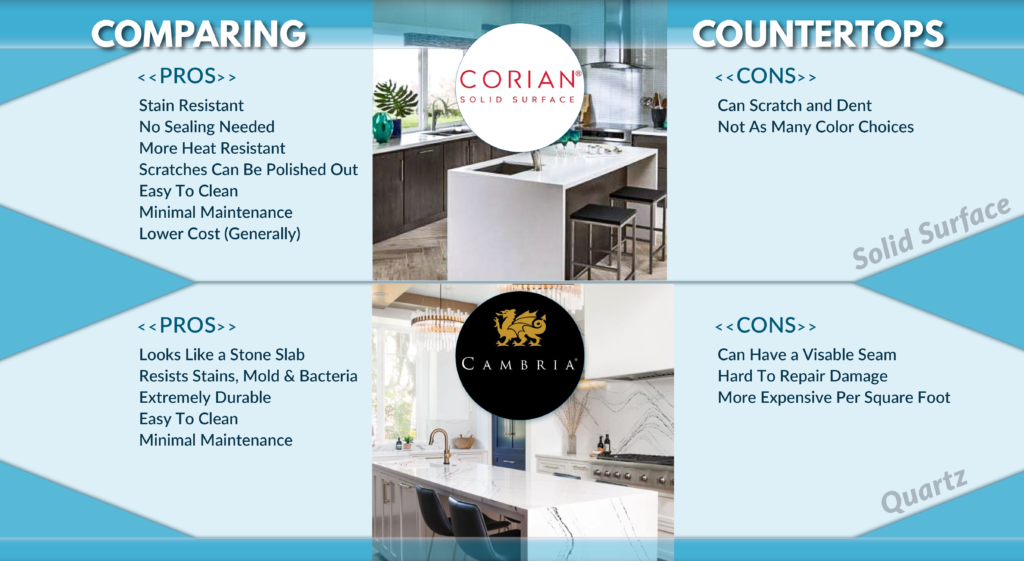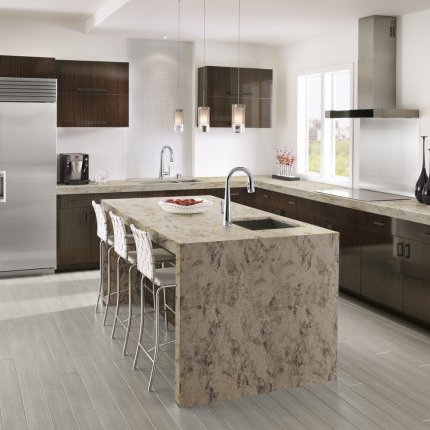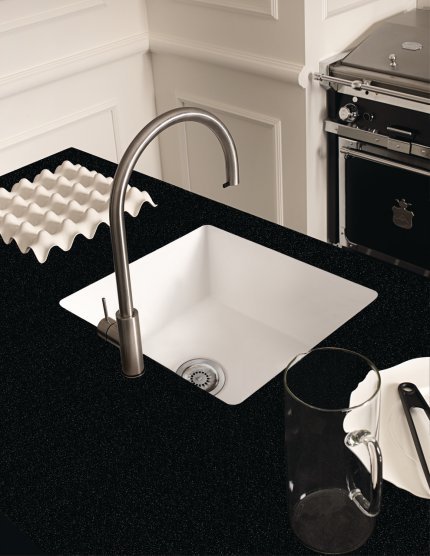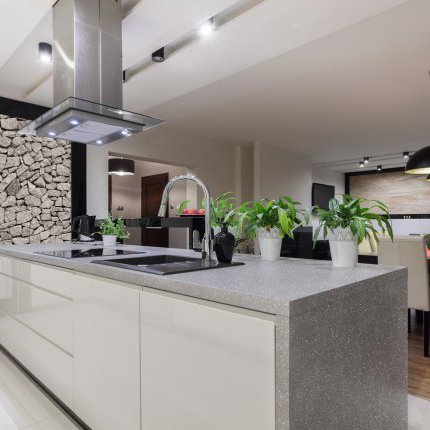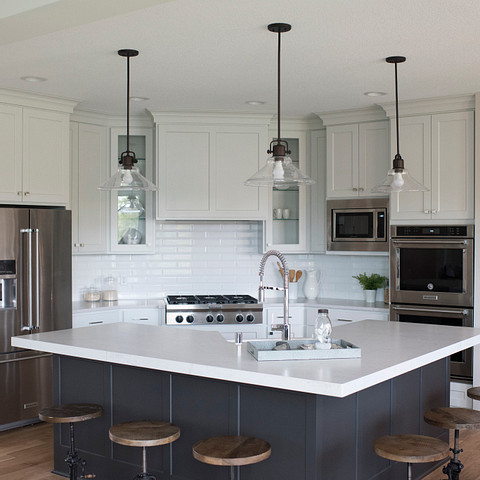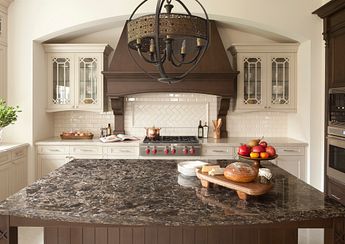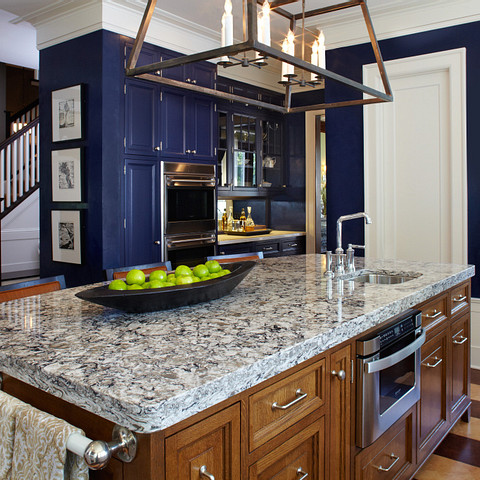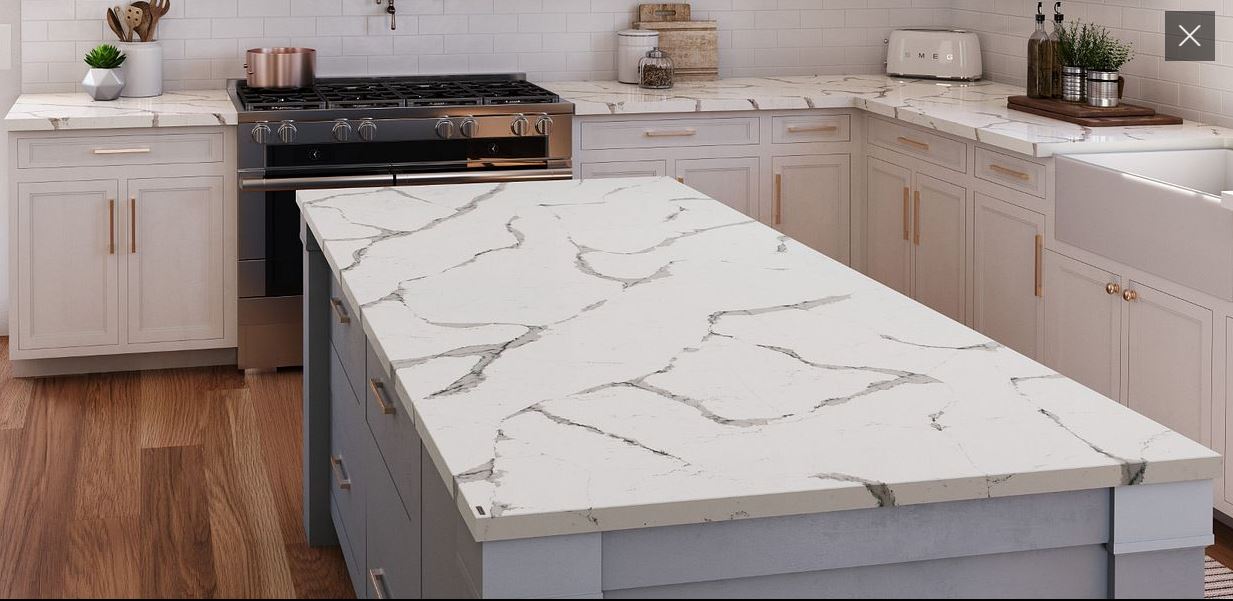
What to Consider When Selecting a Kitchen or Bathroom Countertop
Your countertops anchor your cabinets and provide much-needed workspace throughout the kitchen. Counters are also popular as a freestanding island, breakfast bar, in-kitchen desk area or to create a stunning tabletop. And countertops are an important component of any bathroom remodel. No matter where you add countertops, they become an attractive focal point that adds your personal design stamp to any kitchen or bathroom.
At Global Sales, our Kitchen Design Experts love pairing cabinets and countertops to create each customer’s dream kitchen. We offer several countertop options for our customers in Bermuda and the Caribbean, but our two most popular brands are Corian® Solid Surface and Cambria Quartz. This always leads to the one of our most asked questions in the kitchen design process: “What’s the difference between Quartz and Corian countertops?”
What’s the Difference Between Cambria Quartz and Corian® Solid Surface Countertops?
Basically, Corian® Solid Surface is a very durable surface that looks great and is reasonably priced. Cambria Quartz countertops are extremely durable and have the look and feel of natural stone and are slightly more expensive than Corian®. While those are the main differences, that’s not enough information to decide which countertop is right for your new kitchen. So, let’s take a closer look at each of these options.
What Is The Countertop Surface Made Of?
Corian® Solid Surface is a nonporous material composed of 1/3 acrylic resin and 2/3 natural minerals derived from an aluminum ore extract.
Cambria Quartz is 90% or higher of natural quartz crystals mixed with pigments and binders.
Are These Countertops Mined or Manufactured?
Corian® Solid Surface is an industry-leading manufacturing process created by DuPont in 1967. It uses an acrylic polymer mix that’s heated and poured into a mold that creates a solid sheet once it cools.
The Cambria processing facility converts natural mined quartz into powder and combines the pure quartz with a small amount of pigment and binders through a manufacturing process.
Are These Countertops Seamless?
Most Corian® Solid Surface products use a color-matching epoxy for a smooth and inconspicuous joint that appears seamless. Styles with irregular patterns or colors that feature random veining require special considerations regarding seams.
Cambria Quartz requires seams for any countertop application longer than 121″ or wider than 54.5″. These seams are generally visible, but often less noticeable than a typical granite seam.
Does Cambria or Corian® withstand heat? Can you put a hot pan or pot directly on it?
All surfaces, including natural stones can be damaged by sudden temperature changes, especially near the edges. Both Cambria and Corian® may not withstand the direct transfer of heat from pots and pans and other cooking units such as electric frying pans and griddles, slow cookers or roaster ovens. Corian® is more heat-resistant and durable than Cambria. Plus, minor damage can be sanded out and repolished with Corian®. But overall, a hot pad or trivet is always recommended to prevent heat damage to your countertops.
Is there a difference with the maintenance needed for Cambria and Corian®? What about cleaning?
Both Cambria and Corian® are nonporous and hygienic. This means that the smooth surfaces do not allow liquids or germs to penetrate, making both easy to keep clean. These countertops are created to be maintenance-free with no sealing or polishing needed. Plus, both Cambria and Corian® resist harmful bacteria, viruses and mold.
Are there a variety of styles and design to choose from?
Cambria is available in more than 200 designs. These distinct designs boast the natural elegance and variation of quarry cut stone. Corian® Solid Surface is available in about 125 designs ranging from bold colors to translucent or traditional looks.
- Corian® Solid Surface
- Corian® Solid Surface
- Corian® Solid Surface
- Cambria Quartz
- Cambria Quartz
How Does Corian® and Cambria compare to Granite and Marble?
Basically, Cambria and Corian® are man-made while Granite is nature-made. This manufactured style of Cambria and Corian® means standard and predictable countertops. Granite and marble are limited to what is currently found in nature’s quarry so your sample will not always match your countertops. Decades of manufacturing experience means a more consistent design look across Corian® and Cambria. With granite and marble, each part of the slab can have variations and veining, making it one-of-a-kind unique.
Additionally, some granite and marble feature veining and imperfections that make them more susceptible to damage in shipping, installation and during the time it’s installed as a countertop.
What about other Quartz brands like Silestone, Ceasarstone, or Corian Quartz?
While many companies have similar manufacturing processes, we recommend Cambria because of the quartz quality, lower resin mix and consistency across manufacturing.
At Global Sales, we have a wide variety of kitchen countertop materials available for every style and budget. We tend to recommend Cambria Quartz and Corian® Solid Surface countertops because of our experience with the product quality and the durability of long-distance shipping.
Talk to our Kitchen and Bathroom design experts. They can help you find the perfect fit for your dream kitchen or bathroom in Bermuda or the Caribbean. Contact us today to learn more or to receive a no-obligation quote.

